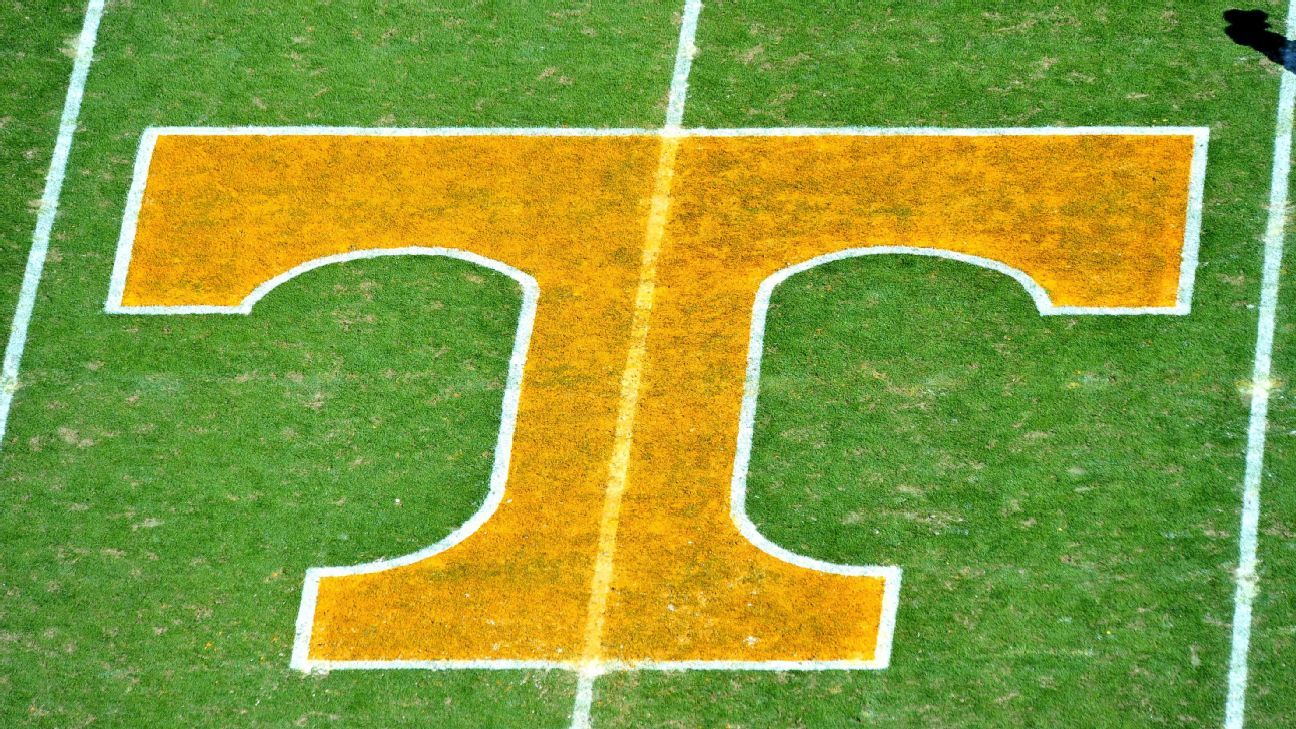A federal judge said Tuesday he will rule “in short order” on a preliminary injunction requested by the states of Tennessee and Virginia to stop the NCAA from enforcing its rules governing name, image and likeness compensation for athletes as part of an antitrust lawsuit.
U.S. District Judge Clifton Corker originally had a four-hour window blocked off for the hearing in Greeneville, Tennessee. The hearing for the states’ request lasted less than 90 minutes.
An orange power T flag representing Tennessee hung from a construction lift in the parking lot facing the courthouse.
Tennessee Attorney General Jonathan Skrmetti attended and spoke to reporters outside. He said in a prepared statement the NCAA’s “arbitrary and illegal rules” are keeping athletes from making important decisions.
“Meanwhile, everybody else involved in college sports is getting rich at those student-athletes’ expense,” Skrmetti said. “That is not legal, not right and it needs to change. Antitrust law in this area is clear, and as the Court has previously said, our case is likely to succeed on the merits. We are happy with the case’s progression and look forward to litigating it fully if necessary.”
Corker denied the states’ request for a temporary restraining order last week, noting that they failed to demonstrate that recruits would be irreparably harmed if it was not granted. But he also wrote the states were “likely to succeed on the merits of their claim” under the Sherman Act.
The chancellor of the University of Tennessee revealed Jan. 30 in a scathing letter to the NCAA president that the organization was alleging that the school violated NIL rules after a meeting a day earlier. Donde Plowman called it “intellectually dishonest” for NCAA staff to pursue infractions cases as if students have no NIL rights.
The NIL collective supporting Tennessee athletes was among the first to emerge after the NCAA lifted its ban on athletes making money off their fame. The NCAA’s investigation has been met with aggressive pushback from both school leaders and the state’s attorney general, including the antitrust lawsuit that claims denying recruits the ability to cash in on NIL is restraint of trade.
The NCAA’s authority to regulate compensation for athletes has been under attack from various avenues.
A National Labor Relations Board official ruled last week that members of the Dartmouth men’s basketball team are employees of the school and could vote to form a union, which the players plan to do. The Tennessee case is one of at least six antitrust lawsuits the NCAA is defending as it also asks for antitrust protections from Congress.
In December, a group of states challenged NCAA rules regarding multitime transfers, with the plaintiffs’ request for TRO being granted. In that case, the NCAA conceded for the moment, asking the TRO be extended to clear up confusion about athletes’ eligibility for the rest of the spring semester. The NCAA is working to reform its transfer rules.
The NCAA failed to implement detailed rules to regulate NIL in 2021, instead leaning on existing rules against recruiting inducements and pay-for-play. The policy, along with many state-level NIL laws, kept schools from being involved in activities that could be seen as creating an employer-employee relationship between institution and athlete.
The NCAA has been moving forward with its own NIL regulations, passing legislation last month that it hopes will bring transparency to the market with the reporting of deals while also curbing bad actors by maintaining a registry of agents and companies to work with athletes.
